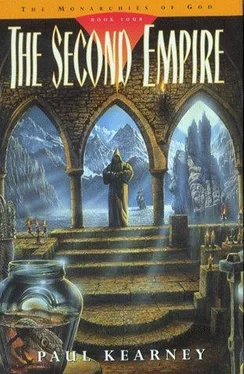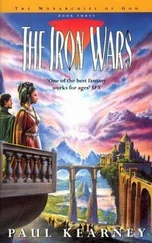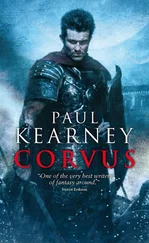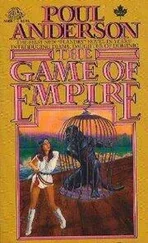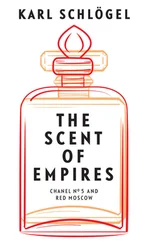Paul Kearney - The Second Empire
Здесь есть возможность читать онлайн «Paul Kearney - The Second Empire» весь текст электронной книги совершенно бесплатно (целиком полную версию без сокращений). В некоторых случаях можно слушать аудио, скачать через торрент в формате fb2 и присутствует краткое содержание. Жанр: Фэнтези, на английском языке. Описание произведения, (предисловие) а так же отзывы посетителей доступны на портале библиотеки ЛибКат.
- Название:The Second Empire
- Автор:
- Жанр:
- Год:неизвестен
- ISBN:нет данных
- Рейтинг книги:5 / 5. Голосов: 1
-
Избранное:Добавить в избранное
- Отзывы:
-
Ваша оценка:
- 100
- 1
- 2
- 3
- 4
- 5
The Second Empire: краткое содержание, описание и аннотация
Предлагаем к чтению аннотацию, описание, краткое содержание или предисловие (зависит от того, что написал сам автор книги «The Second Empire»). Если вы не нашли необходимую информацию о книге — напишите в комментариях, мы постараемся отыскать её.
The Second Empire — читать онлайн бесплатно полную книгу (весь текст) целиком
Ниже представлен текст книги, разбитый по страницам. Система сохранения места последней прочитанной страницы, позволяет с удобством читать онлайн бесплатно книгу «The Second Empire», без необходимости каждый раз заново искать на чём Вы остановились. Поставьте закладку, и сможете в любой момент перейти на страницу, на которой закончили чтение.
Интервал:
Закладка:
Corfe nodded. He, too, would have been happy to die that day, knowing the battle was won.
“There is still the peace,” Odelia said with that disquieting prescience of hers. “It remains to be achieved. What you do today is part of that.”
“I know. I’m not sure it is the way I would have chosen, though.”
“It is the best way,” she said, pressing his arm. “Trust me, Corfe.”
He limped away from the parapet with her hand still on his arm and turned back towards the city below. From this height, Torunn looked like some fairy-tale metropolis. The streets were packed with people-it was said a quarter of a million had gathered in City Square-and every house seemed to be flying some flag or banner. The citizens crowded upper-floor windows like tiers of house martins in their nests, and Torunnan regulars in full dress were stationed at every corner.
“Let’s get it over with,” Corfe said.
Formio had drawn up an honour guard of pike-stiff Fimbrians in the court-yard of the palace, and as Corfe and Odelia appeared they snapped to attention like automatons. The Fimbrian adjutant saluted his commander with a rare smile, one arm still in a sling. He looked pale and somewhat ethereal, but had insisted on leaving his sickbed for this day. The chill in Corfe warmed a little. Aras was there too, the huge scar in his face nearly healed. The Queen had worked tyrelessly in the aftermath of Armagedir, saving countless lives and wearing herself down to a shadow in the process. “Give you joy, sir,” Aras ventured.
“Thank you, General.”
Corfe and Odelia climbed into the open barouche that awaited them, and set off out of the palace flanked by fifty mounted Cathedrallers-all that had survived. As soon as they appeared at the palace gates a great roar went up from the waiting crowds. They trundled through the cobbled streets with the Cathedrallers raising a clattering din of hooves about them and the people cheering madly. The air was full of blossoms that spectators were scattering from the windows overhead.
“Wave, Corfe,” Odelia said out of the corner of her mouth. “They’re your people. They are what you won the war for.”
The cavalcade halted before the steps of the city cathedral and there they got out in a cloud of footmen, dignitaries and whirling blossom. There was a salute of massed trumpets. They paused on the stone steps, Odelia smiling and nodding graciously at the Merduk ambassador, one Mehr Jirah, Corfe giving him a cold glance before they walked on, pageboys lifting the Queen’s train and the hem of Corfe’s long cloak.
And into the cathedral, its pews stuffed to overflowing with what nobility the kingdom still possessed, their numbers augmented by the great and the good of Torunna. Corfe’s eye was caught by Admiral Berza, near the aisle. The old admiral winked at him as he passed by, his face as stiff as wood. There was Passifal’s white head amongst the assembled military. Corfe recognised no-one else. He limped up the aisle staring straight ahead, expressionless.
Up at the altar Macrobius stood ready, smiling his blind smile. He was flanked by Bishops Albrec and Avila, who each bore velvet cushions. On one rested the crown of Torunna. On the other was a pair of plain gold wedding rings. One led to the other: both were deemed necessary for the well-being of the country.
Corfe and the Queen came to a halt before the Pontiff. As they did, Albrec caught Corfe’s eye-he seemed strangely troubled. For a moment Corfe wondered if the little cleric was about to speak, but had thought better of it. The moment passed.
Another blare of trumpets. Incense, heady as powder-smoke, writhing in ribbons within the shafted sunlight of the high windows. The stained glass threw down a maelstrom of colour upon the flagstones, dimming the serried candle flames, raising painful glitters off the gold and gems that sparkled everywhere, even on Corfe’s clothing.
Pictures pelting through his mind like rain. His first marriage, in a small chapel near Aekir’s South Gate. Heria had held a posy of primroses. It had been spring, as it was today. They had been married two years when the siege began.
Sitting in the mud under a wrecked ox waggon on the Western Road with this same man who was about to crown him, gnawing on a half-raw turnip and wiping the rain out of his eyes.
Sharing a skin of wine with Marsch and Andruw on the battlements of Hedeby, after their first battle together. Drunk with victory and the comradeship that had enriched it, momentarily believing that all things were possible.
“Yes, I will,” he answered when Macrobius asked him the question. And he had the cold gold slipped upon his finger. Odelia looking into his eyes, the years come crowding into her face at last. When he set the other ring in place she clenched her fist around it as if to prevent it ever slipping off. Her kiss was dry and chaste as a mother’s. A few moments later the crown was set upon his head. It was surprisingly light, nothing like the weight of a helm. It might have been made of tinsel and feathers for all Corfe felt it.
When he straightened, the sunlight caught the precious metals of his crown and set it aflame, and all the bells of Torunn’s cathedral began tolling at once in peal after jubilant peal, and outside he could hear the massed crowds of people who were now his subjects set up a mighty roar.
And it was done. He had a wife once more, and Torunna a King.
The Merduk ambassador was first in line at the levee that afternoon. Corfe and the Queen received him in the huge audience hall of the palace, flanked by guards and palace functionaries. The new steward was present-none other than Colonel Passifal, appointed by Royal decree. He stood to one side of the trio of thrones looking uncomfortable but oddly determined. General Aras, also present, had been elevated to commander-in-chief of the army, with Formio as a de facto second-in-command. The Fimbrian was Corfe’s first choice, but as Odelia had made very clear even a King had to think twice before placing the national army under the command of a foreigner.
Corfe needed familiar faces about him, and they were becoming increasingly hard to find. The third throne on the dais was occupied by another one, that of Macrobius. Standing beside him was Albrec and a gnomish old cleric named Mercadius, who could speak fluent Merduk. Corfe shared a history with almost all these familiar faces: he had fought side by side with Aras, Formio and Passifal. He had saved Macrobius’s life. He had escaped from Fournier’s dungeons with Albrec. The war had cost him his wife, and the best comrades he had ever known, but had it not been for the war he would never have known the friendship of men like these, like Andruw and Marsch, and he would have been the poorer for it.
Mehr Jirah entered the audience chamber without ceremony, flanked only by a pair of Merduk clerics who looked surprisingly similar to Ramusian monks, albeit without tonsures. Mercadius of Orfor translated his speech into Normannic for the assembled listeners.
“These are the words I was bade to say to the King of Torunna by my master the Sultan of Ostrabar.
“We send greetings to Torunna’s new King, and congratulate him on his unexpected elevation. Truly, God has been kind to him. We will suffer ourselves to speak to him now as one soldier to another, in terms as plain as we can make them. The slaughter of our young men has gone on long enough. We have carpeted the world with the bodies of our dead, and in the name of God and His Prophet we offer the Torunnan King this chance to end the killing. In our generosity we will withhold the wrath of our mighty armies and suffer the kingdom of Torunna to survive, if King Corfe will merely acknowledge the suzerainty of Aurungzeb the Great, Sultan of Ostrabar, conqueror of Aekir and Ormann Dyke. He has to but bend his knee to us and this war will come to an end, and we shall have peace between our peoples for all time. What says Torunna’s monarch?”
Читать дальшеИнтервал:
Закладка:
Похожие книги на «The Second Empire»
Представляем Вашему вниманию похожие книги на «The Second Empire» списком для выбора. Мы отобрали схожую по названию и смыслу литературу в надежде предоставить читателям больше вариантов отыскать новые, интересные, ещё непрочитанные произведения.
Обсуждение, отзывы о книге «The Second Empire» и просто собственные мнения читателей. Оставьте ваши комментарии, напишите, что Вы думаете о произведении, его смысле или главных героях. Укажите что конкретно понравилось, а что нет, и почему Вы так считаете.
